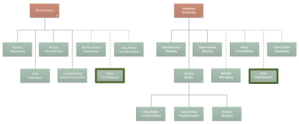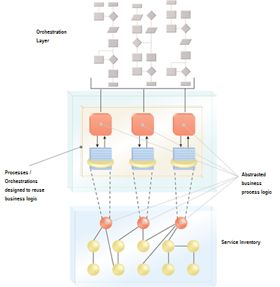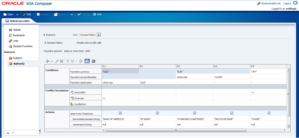Hello appreciated readers and welcome to this special edition of the SOAMythbusters Blog. Today we celebrate OTN along the rest of our wonderful community, by joining Tim Hall’s brilliant idea: OTN Appreciation Day
One of my favourite SOA Suite features (and in my experience one of the most underestimated) is the Oracle Business Rules Engine, which enables us to smoothly realize the “Rules Centralization” service-orientation pattern by abstractly and centrally governing business rules, promoting reuse, standardization and simplifying code by removing this type of business logic from the component’s core implementation.
Curiously, OBR happens to be one of the oldest components in the Fusion Middleware stack. This doesn’t mean though that it hasn’t improved over time, bringing new functionality with every new release, like for example: Conflict Resolution, Verbal Rules, SCA composition, MS-Excel integration, etc., and also remaining present as a fundamental part of the SOA Cloud Service.
With the use of OBR, it is possible to generate a layer of “decision services” within a service inventory. In the same way as the rest of the services in there, these decision services can be reutilized by applications, business processes, service compositions, etc.
But the value of OBR isn’t limited to the developer / architecture perspective, as this is a component whose ultimate goal is to bridge the gap between the business and IT by enabling end users to create, modify, reconfigure and maintain dynamic business-oriented rules in a friendly web-based environment (SOA Composer).
There is a lot more to say about this component, and together with my ex-teammates Rolando, Marisol & Miguel we have created a comprehensive and super detailed article about OBR which is already in the OTN pipeline and will be released soon.
So keep tuned to the SOAMythbusters Blog and let’s keep celebrating OTN!!
Cheers
Arturo Viveros


